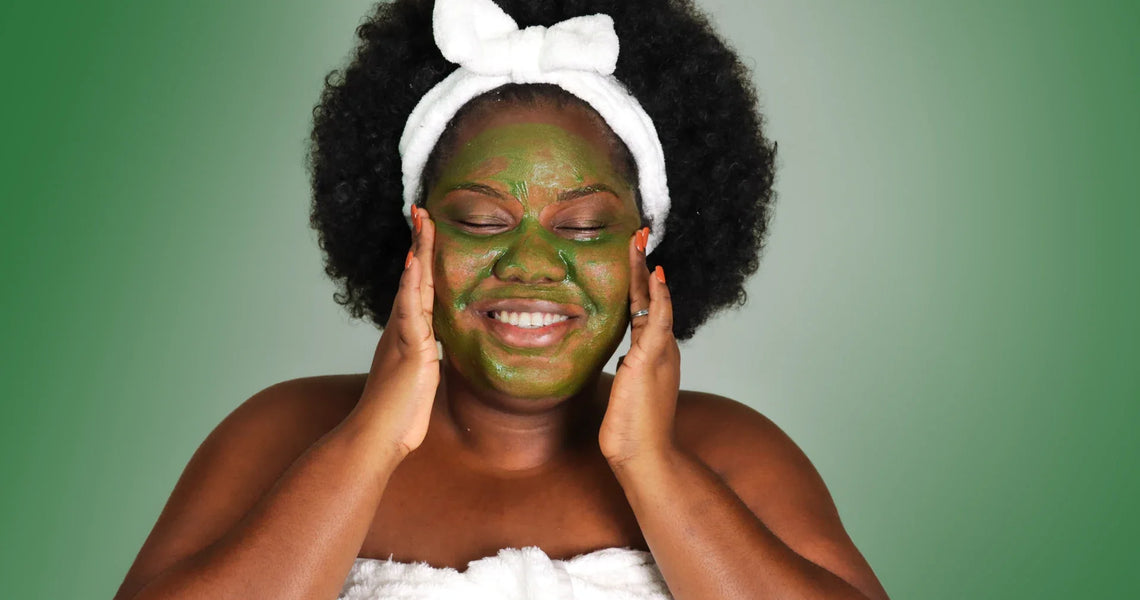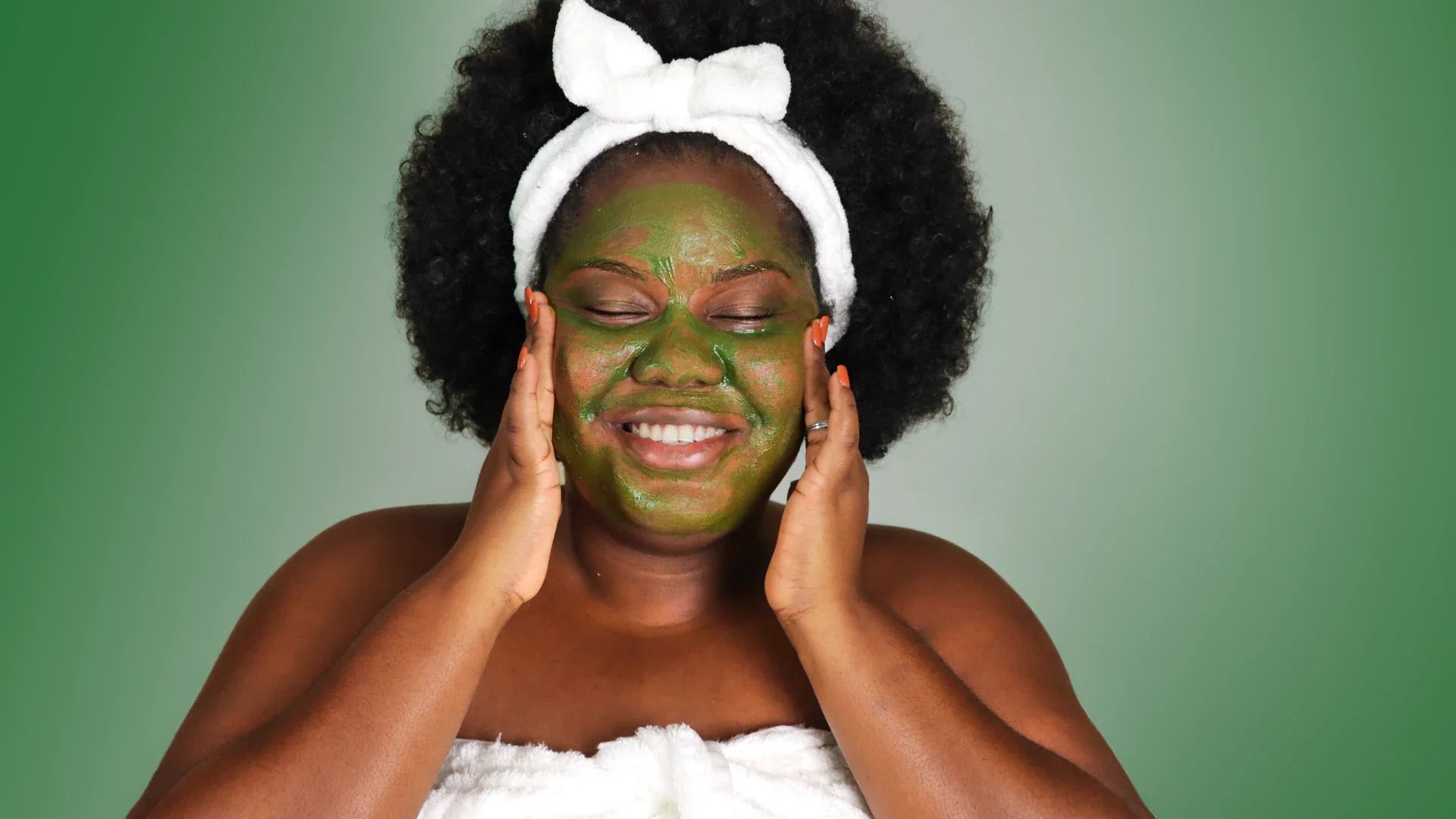Lorem ipsum is simply dummy of the printing and industry lorem text ipsum has been standard.
In our daily lives, many of us encounter frustrating skin issues that seem to persist despite our best efforts. Perhaps it's the persistent acne that refuses to budge, the dry patches that never seem to go away, or the premature signs of aging that catch us by surprise. These real-life problems often start from the common mistakes we make in our skincare routines, mistakes that, when left unaddressed, can wreak havoc on our skin health and appearance.
Our skin, after all, is our body's largest organ that serves as a protective barrier against external threats. It is a reflection of our internal health and can greatly impact our self-esteem and confidence. Despite our best intentions, many of us fall into the trap of skincare blunders that can sabotage even the most diligent routines. It can be due to misinformation, lack of awareness, or simply bad habits.
So in this blog, we are gonna talk about the most common skincare mistakes people make and provide practical tips to help you avoid them.
7 Common Skin Care Mistakes People Make
1. Over-Cleansing Your Face
Many of us have been led to believe that the key to clear, healthy skin is to cleanse it frequently and vigorously. However, this notion couldn't be further from the truth. In fact, over-cleansing can do more harm than good.
The misconception that more cleansing equals better skin stems from the belief that washing away dirt and impurities will leave the skin squeaky clean and blemish-free. However, what many fail to realize is that our skin has its own natural protective barrier composed of oils and beneficial bacteria. When we cleanse too frequently or aggressively, we disrupt this delicate balance, stripping the skin of its natural oils and leaving it vulnerable to dryness, irritation, and even breakouts.
Over-cleansing is like a bulldozer that indiscriminately wipes out everything in its path, including the good bacteria that keep our skin in balance.

So, how can we avoid this common skincare mistake and strike the right balance when it comes to cleansing? Go for a gentle and mindful approach to skincare.
First, choose a cleanser that is suited to your skin type. If you have dry or sensitive skin, choose a hydrating, non-foaming cleanser that will cleanse without stripping away moisture. For oily or acne-prone skin, a gentle, oil-free cleanser with salicylic acid or benzoyl peroxide may be more suitable.
Additionally, resist the urge to scrub your skin vigorously or use harsh exfoliants on a daily basis. While exfoliation can be beneficial for removing dead skin cells and promoting cell turnover, overdoing it can lead to irritation and inflammation. Instead, limit exfoliation to 1-3 times per week and choose gentle exfoliants such as alpha hydroxy acids (AHAs) or beta hydroxy acids (BHAs).
2. Skipping Sunscreen
Sunscreen is often hailed as the holy grail of skincare, and for good reason. Its importance in protecting the skin from the damaging effects of the sun's ultraviolet (UV) rays cannot be overstated. However, many people still ignore the numerous evidence supporting its benefits and skip sunscreen.
The truth is, that daily sunscreen use is very important for maintaining skin health and preventing a multitude of skin issues. UV radiation from the sun is a leading cause of wrinkles, age spots, and other signs of aging. So sunscreen should be your first line of defense against visible signs of skin damage.
One common excuse for skipping sunscreen is the misconception that it's only necessary on sunny days or during outdoor activities. However, UV rays can penetrate clouds and windows, meaning you're still at risk of sun damage even on cloudy days or when indoors. In fact, studies have shown that up to 80% of UV rays can pass through clouds.
Another excuse often cited is the belief that sunscreen feels heavy or greasy on the skin. While this may have been true of older sunscreen formulations, modern sunscreens are lightweight, non-comedogenic, and easily absorbed into the skin. There are plenty of options available, including oil-free, gel-based, and mineral sunscreens, so you're sure to find one that suits your skin type and preferences.
Choose a broad-spectrum sunscreen with an SPF (sun protection factor) of at least 30, which will protect against both UVA and UVB rays. Apply it liberally to all exposed areas of skin, including your face, neck, and hands, and don't forget about often-overlooked areas like your ears and lips.
For maximum protection, make sure to reapply sunscreen every two hours, especially if you're spending extended periods outdoors or engaging in activities that cause sweating or swimming.
3. Not Moisturizing Properly
Moisturizing is a fundamental step in any skincare routine, yet it's one that is often overlooked or not given the attention it deserves. Whether you have oily, dry, or combination skin, proper moisturization is a must to maintain skin health and prevent a myriad of issues.
Moisturizers are formulated to hydrate the skin by attracting and sealing in moisture. They contain ingredients such as humectants (like hyaluronic acid), emollients (like oils and butters), and occlusives (like petrolatum or dimethicone) that work together to keep the skin soft, supple, and plump.
One common mistake many people make is not moisturizing at all or using the wrong type of moisturizer for their skin type. For example, those with oily skin may shy away from moisturizers out of fear of exacerbating shine or causing breakouts. However, skipping moisturizer can actually worsen oiliness by triggering the skin to produce more oil to compensate for the lack of hydration. On the other hand, using a heavy, oil-based moisturizer may not be suitable for oily skin types and can lead to clogged pores and acne.
Similarly, individuals with dry skin often make the mistake of using lightweight moisturizers that are not emollient or occlusive enough to effectively lock in moisture. This can result in ongoing dryness, flakiness, and discomfort.
To avoid these common mistakes, choose a moisturizer that is made to your skin type and concerns. For oily or acne-prone skin, go for oil-free, non-comedogenic moisturizers that are lightweight and won't clog pores. Look for ingredients like hyaluronic acid or glycerin, which provide hydration without adding excess oil.
For dry or sensitive skin, choose richer, creamier moisturizers that contain nourishing ingredients like ceramides, shea butter, or squalane to help repair the skin barrier and lock in moisture. Avoid products with added fragrances or alcohol, as these can further irritate dry, sensitive skin.
Regardless of your skin type, there are a few universal tips for maximizing the effectiveness of your moisturizer. First, apply moisturizer to damp skin immediately after cleansing or showering to help seal in moisture. This will also help the product absorb more effectively into the skin.
4. Over-Exfoliating
Exfoliation is a skincare procedure that removes dead skin cells from the skin's surface to reveal newer, healthier skin underneath. There are two main methods of exfoliation: physical and chemical.
Physical exfoliation typically involves using abrasive particles or tools, such as scrubs, brushes, or loofahs, to manually slough away dead skin cells. Chemical exfoliation, on the other hand, utilizes ingredients like alpha hydroxy acids (AHAs), beta hydroxy acids (BHAs), or enzymes to dissolve the bonds between dead skin cells and facilitate their removal.
Over-exfoliating, or exfoliating too frequently or aggressively, can have detrimental effects on the skin and lead to a host of issues.
One of the primary dangers of over-exfoliating is irritation and inflammation. Excessive exfoliation can strip away the skin's natural oils, disrupt its protective barrier, and make it vulnerable to irritation, redness, and sensitivity. Furthermore, it can also compromise the skin's ability to retain moisture. Prolonged or severe over-exfoliation can also cause micro-tears in the skin, which can exacerbate inflammation and increase the risk of infection.
So what is the solution? If you have sensitive or dry skin, go for gentle exfoliants like lactic acid or PHA (polyhydroxy acid), which are less likely to cause irritation. For oily or acne-prone skin, BHAs like salicylic acid can help unclog pores and reduce breakouts.
In terms of frequency, it's generally recommended to exfoliate no more than 1 to 3 times per week, depending on your skin's tolerance and the strength of the exfoliant. Listen to your skin and adjust your exfoliation routine accordingly. If you experience any signs of irritation or over-exfoliation, such as redness, flakiness, or increased sensitivity, scale back on exfoliation and give your skin time to recover.

5. Ignoring Ingredients
We often ignore the ingredients of the skincare products we buy or use. While flashy packaging and bold claims may catch our attention, it's what's inside the bottle that truly matters.
Many skincare products on the market today are loaded with a cocktail of ingredients, some beneficial and others potentially harmful. Neglecting these ingredients and their effects can cause irritation, allergic reactions, and long-term damage to the skin.
For example, ingredients like parabens, sulfates, and synthetic fragrances have been linked to various adverse effects, including skin irritation, allergies, and hormone disruption. Parabens, in particular, have raised concerns due to their potential to mimic estrogen in the body and disrupt hormone balance, which may contribute to reproductive issues or even certain cancers.
The ingredients in some skincare products, such as alcohol denat and artificial colors, can be particularly drying and irritating to the skin, especially when used on sensitive or reactive skin. Look for labels that tout "paraben-free," "sulfate-free," or "fragrance-free" formulations, and choose products with simpler ingredient lists whenever possible.
On the flip side, pay attention to beneficial ingredients. Antioxidants like vitamin C and green tea extract can help protect the skin from environmental damage and oxidative stress, while hyaluronic acid and glycerin provide intense hydration and plumpness.
For those looking to address specific skincare concerns, ingredients like retinoids (vitamin A derivatives) can help reduce the appearance of fine lines, wrinkles, and hyperpigmentation, and niacinamide (vitamin B3) can help regulate oil production and improve the skin's texture and tone.
6. Touching Face Frequently
While it may seem harmless, the habit of frequently touching your face can actually have detrimental effects on your skin health. Our hands come into contact with countless surfaces throughout the day, picking up dirt, bacteria, and other impurities along the way. When we touch our faces, we transfer these impurities onto our skin. It increases the risk of clogged pores, breakouts, and other skin issues.
Frequent contact with the face has the immediate consequence of introducing bacteria and other pathogens to the skin. This can lead to acne flare-ups, particularly for individuals with oily or acne-prone skin. Additionally, rubbing or scratching at the skin can cause irritation and inflammation.
It can also spread viruses and other contagious illnesses. If contaminated hands come into contact with the mucous membranes of the eyes, nose, and mouth, they can become infected. This is particularly concerning during cold and flu season or in situations where infectious diseases are prevalent.
So what can be the solution? One strategy is to keep your hands busy with other activities, such as using a stress ball or fidget toy, to reduce the urge to touch your face out of boredom or anxiety. Additionally, practice good hand hygiene by washing your hands regularly with soap and water, especially before touching your face or applying skincare products.
If you find yourself touching your face unconsciously more frequently, you can consider wearing gloves or using adhesive bandages on your fingertips as a physical barrier to prevent direct contact with your skin for some time until it develops a habit of not touching your face. Alternatively, try placing reminders or visual cues in strategic locations, such as on your bathroom mirror or computer screen, to remind yourself to avoid touching your face.
7. Not Getting Enough Sleep
A good night's sleep is often referred to as the ultimate beauty treatment, and for good reason. Yet, nowadays, sleep is often sacrificed in favor of work, socializing, or binge-watching Instagram reels, YouTube shorts, or our favorite TV shows. However, skimping on sleep can have serious consequences for our skin health and appearance.
When we don't get enough sleep, our bodies produce more cortisol, the stress hormone, which can lead to inflammation throughout the body, including the skin. This can manifest as redness, sensitivity, and an increased risk of conditions like eczema and psoriasis. Moreover, sleep deprivation disturbs the body's natural circadian rhythm which prevents overnight skin repair and regeneration.
One of the most noticeable effects of sleep deprivation on the skin is dullness and dark circles under the eyes. Lack of sleep can cause blood vessels to dilate and can impair blood flow to the skin, resulting in a dull, sallow complexion and an overall lackluster appearance.
During sleep, the body undergoes important repair processes, including the production of collagen and elastin, which help keep the skin firm, smooth, and youthful-looking. When we don't get enough sleep, these repair processes are disrupted too.
The regularity of your sleep schedule can help regulate your body's internal clock and improve the quality of your sleep. Also make sure your bedroom is dark, quiet, and cool, and invest in a comfortable mattress and pillows that support healthy sleep posture. Limit exposure to screens, such as phones, computers, and TVs, before bedtime, as the blue light emitted by these devices can interfere with your body's natural sleep-wake cycle.
Conclusion
In taking care of our skin, it's easy to make mistakes without even realizing it. From washing too much to forgetting sunscreen, these slip-ups can harm our skin in many ways. But with a bit of knowledge, we can avoid these blunders and keep our skin healthy and glowing.
At Anny Naturals, we know the importance of natural products for our skin. That's why we offer a range of gentle and effective skincare items like soaps, body milk, oils, creams, and serums. By choosing natural ingredients, we can give our skin the love and care it deserves.
So, let's keep it simple and take good care of our skin. With the right habits and products, we can enjoy healthy, happy skin for years to come.



